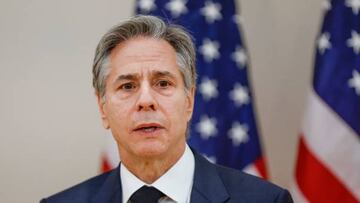What will the US do to increase the production of cobalt needed for batteries?
US State Department has reached an agreement with African leaders over cobalt production; new reports show that human and labor rights could suffer.


To increase cobalt production so electric vehicle manufacturers in the United States can expand production, the United States announced a memorandum of understanding (MoU) with the Democratic Republic of the Congo and Zambia. This agreement was signed by the US, the DRC (which sits on the largest cobalt reserve in the world), and Zambia, the second-largest producer.
What are the next steps following the signing of the MoU?
The US government grew described the MoU as a way to build supply chains that “keep more value added in Africa” by “open[ing] the door for U.S. and like-minded investment.” Value-added relates to processing and other forms of secondary transformation that increase the value of a commodity. When cobalt is extracted from the ground, it cannot automatically be used to produce a battery, first, it must be processed into a more pure form.
This agreement is the first step in a larger project that, down the line, “could include commercial development,” but for now, will focus on “exploring technical assistance opportunities to facilitate potential U.S. private sector participation in such projects.”
Additionally, the governments agreed to tackle problems associated with corruption, which the US believes would further incentive foreign capital investments.
The impacts of this MoU could take years to take effect. Still, already, many labor rights activists are concerned that the safety, health, and livelihoods of cobalt miners are not receiving adequate priority and attention. For instance, while addressing corruption to encourage investment could increase the amount of money flowing into a country, how, or whether, those funds would be used to increase the well-being of the people is not a given. Assuming that more foreign investment automatically creates better conditions for a country’s people is an international version of trickle-down economic theory.
The dangers of mining for workers and the planet
Siddarth Kara, author of “Cobalt Red: How The Blood of The Congo Powers Our Lives,” posted a video to Twitter of a cobalt mine, which casts light on the dangerously deplorable conditions miners work under.
As automakers gather at #CES2023 to proudly announce their newest models of EVs, I wonder how much time they will spend discussing that this is the kind of hellscape from which the cobalt in their batteries is mined?@StMartinsPress @Freedom_Fund @CNNFreedom pic.twitter.com/vDHvQozmem
— Siddharth Kara (@siddharthkara) January 5, 2023
The video lacks any clear indication that whoever is financing the operation or purchasing the material mined cares about the safety of workers engaged in extraction. And, based on the material included in the MoU, improving these exploitative conditions does not form part of the project. Kara has also posted about the use of child labor, many which who earn around a dollar a day.
Everyday countless children in the DRC stand in toxic pools of water to sieve dirt and rubble from cobalt pebbles, one sack of which will earn them around a dollar per day from the traders who sell the cobalt to big mining companies.@StMartinsPress @TheJRECompanion @CNNFreedom pic.twitter.com/SPQKsrjpNt
— Siddharth Kara (@siddharthkara) December 31, 2022
The “cobalt pebbles” collected after standing “in toxic pools of water” are sold to “traders who sell [the material] to big mining companies.” It is these traders that then sell to companies involved in the production of EV batteries. In this scheme, the “traders” act as middlemen and shield foreign companies from having to take responsibility for the labor conditions across the sector.
Related stories
Another video brings forward another consequence of mining: environmental degradation. While there will be emissions reduction benefits when fewer gasoline-powered are on the road, policymakers would be wise not to ignore the destruction left behind by mining. Particularly in geographies where the mining sector is not overseen or well-regulated the risk of over-exploiting the land is immense.
Another shot of the grim wasteland at the other end of our rechargeable lives.
— Siddharth Kara (@siddharthkara) January 19, 2023
You will see no dignity or sustainability here...only a poverty-driven scramble for cobalt, leaving behind the utter ruin of people and earth. @StMartinsPress @CNNFreedom @Freedom_Fund @rightsbeacon pic.twitter.com/F01fn11GZA
If these materials are so valuable, then so is the labor required to extract them, and it is about time that the conditions for workers reflected that reality.